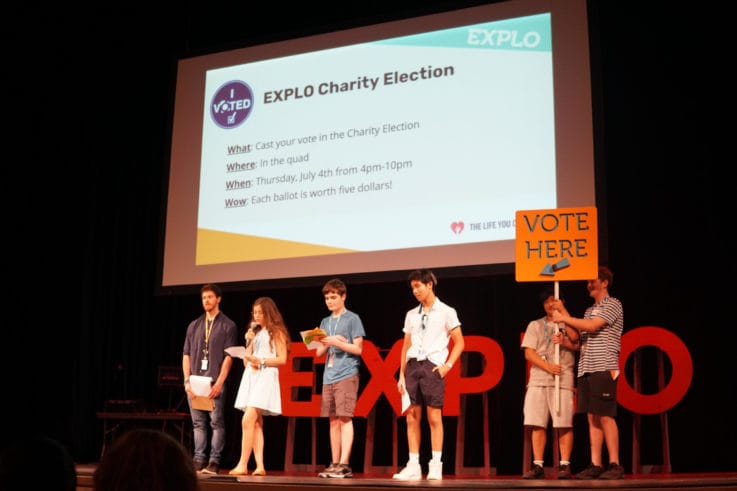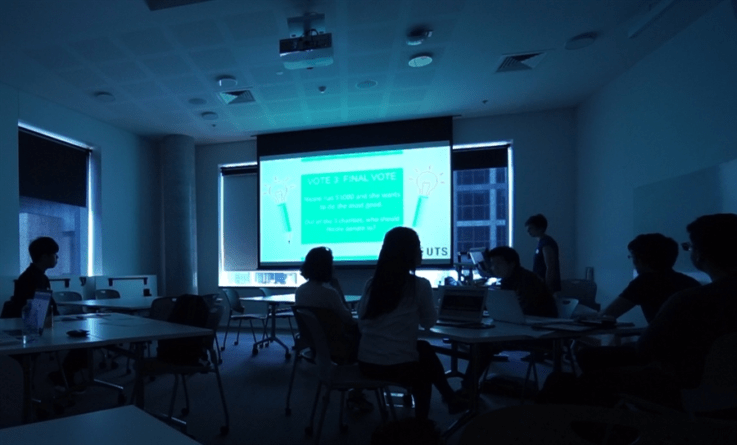Computer Games Donate Money To Charity
Running a Giving Game?
Below is everything you need to run a Giving Game:
Giving Games Powerpoint: Here you can access a deck of slides to use when running your Giving Game.
Instructional Video: How To Run a Giving Game: A video explaining the content of each slide.
Instructions on how to use the Giving Games Platform: Instructions on how to use the impact-tracking Platform which records votes and attitude and plan changes.
Giving Games Reference Guide: Write-up of key lessons learned. A useful resource if you have particular questions.
You can access optional additional resources here.

What is a Giving Game?
We have an ambitious goal: we want to fundamentally shift the way people learn about, and practice charitable giving. Our aim is to inspire people to give more and give effectively.
Giving Games are cost-effective educational activities designed to introduce participants to effective giving. During a typical Giving Game, each participant is given $10, introduced to the featured charities, and asked to make an initial choice based on short fundraising pitches. The facilitator then goes into more detail about the work of the non-profits, and how to maximize the potential impact of charitable giving. In particular, the facilitator explains core concepts like cost-effectiveness, evidence, and how the overhead myth is incorrectly used to assess the performance of nonprofits. At the end of the Giving Game, participants decide where to donate.
We sponsor each participant $10 to donate during a Giving Game, which is a fraction of what is spent on traditional philanthropic education. By doing this, w e educate people about the importance of high impact philanthropy and introduce them to resources that can guide their effective giving journeys. We additionally support our network of facilitators and leverage the impact of donors' gifts by allowing them to support teaching others about good giving while supporting great charities at the same time.

How can you help?
Run a Giving Game! We now have ready-to-run materials and a wealth of guidance for anyone wishing to run their own Giving Game. We aspire for our materials to be plug-and-play and continually tweak our materials to make them as usable and effective as possible. If you are interested in running a Giving Game, please reach out to us.
Introduce us to your networks: We want Giving Games to become standard practice for introducing people to effective giving, philanthropy, and altruism. To do this, we need to spread the message about the potential uses of Giving Games. We would like you to get in touch with us if you want to run a Giving Game, or know of networks we can utilize to scale Giving Games effectively.
Sponsor a Giving Game: Sponsoring Giving Games offers an exciting opportunity to multiply your impact. 100% of your money will end up in the hands of outstanding charities. By letting others donate your money- and learn in the process- you gain the chance to influence how they give in the future. We sponsor each participant $10 to donate during a Giving Game, which is a fraction of what is spent on traditional philanthropic education.
Support our work: Giving Games rely on donations from our community and this support will become critical as we scale. Please consider funding the operations for the Giving Games Project. We operate with full transparency, so if you are interested in seeing a breakdown of our project's expenses, please just reach out.
You can get in touch with Kathryn at givinggames@thelifeyoucansave.org.
FAQ
Program Design
As we have limited capacity, we focus the majority of our resources on educating participants about the potential of high impact philanthropy in the alleviation of poverty. We are open in limited cases to featuring organizations that work in different focus areas when this would fulfill clear learning objectives.
We have ready-to-run materials featuring Playpumps, a non-profit that initially appears to be impactful but has been proven to be ineffective, GiveDirectly, a non-profit that provides beneficiaries with unconditional cash transfers, and the Against Malaria Foundation, which distributes insecticide-treated bednets to protect against mosquito-borne illnesses. This selection of nonprofits raises interesting questions about the role of international development and encourages participants to think critically about the merits and challenges of two very different but highly effective initiatives. It also makes the case to look beyond instinct and first-impressions to the evidence.
We can additionally consult with Giving Game hosts and facilitators to design tailored exercises that will resonate with particular audiences. For example, if we were running a Giving Game at a business school, we might feature non-profits primarily focused on economic empowerment and livelihood building.
Some Giving Games use a winner-take-all voting system, while others distribute the money proportional to the votes. We've had success using both models. Similarly, voting can be public or anonymous, depending on the particular setting. In 2019, we introduced an online Guided Track platform which handles the voting process.
While the voting structure is flexible, it should require the participants to choose their preferred charity. Some people will invariably find it hard to choose and will prefer to split the money evenly. Since a key goal is for participants to reflect deeply on their priorities and on trade-offs, we recommend against offering such an option.
As a general rule of thumb, the sponsor's donation in a Giving Game amounts to $10 to $20 per participant. In a Speed Giving Game, the amount is typically $1 per participant.
Giving Games are low-cost simulations of real giving choices. They have greater potential for scale and use scarce resources in an efficient manner. We believe that the lack of growth in traditional experiential philanthropy is connected to its high-cost structure. Results from the field suggest a different and smaller-scale approach to student philanthropy is the way forward. A detailed explanation can be found here.
Facilitators
Our facilitators are absolutely critical to Giving Games' success and have employed Giving Games in a number of environments. Our pop-up resources make it easy to run a Giving Game so if you want to learn more about effective giving, we definitely want to hear from you.
Donors and hosts
In 2019, we refocused the way we measure the impact of Giving Games. We now primarily look at two core criteria, which were changes in how participants:
- Value considerations associated with effective giving.
- Plan to give more effectively going forward or become involved in effective altruist/ effective giving groups or organizations.
The results are described in detail in our 2019-2020 Impact Report.
After running a Giving Game, the facilitator lets us know which charity won via the Giving Games Platform, and we arrange a donation through The Life You Can Save (TLYCS).
We make payments on a quarterly basis, so while we are able to send the host or facilitator a summary report, we cannot send individual donation confirmations. This is to conserve staff time as Giving Games scale.
If you have a group you think would derive value from attending a Giving Game, but do not personally wish to facilitate, please get in touch! Giving Games have now been run with over 13,000 participants in 25 countries, spanning all continents other than Antarctica, and with a variety of objectives ranging from serving as a teaching aid to informing the execution of businesses' Corporate Social Responsibility (CSR) obligations. As we build a skilled network of facilitators, it is highly likely that we can help identify one for your event.
Annual Report
Impact Report
The Giving Games Impact Report 2019-2020.
Annual Report
Since the Giving Game Project's last detailed update in mid-2016, we've provided philanthropy education to over 4,000 people around the world through our flagship workshops. This report provides an update on what we've done and learned over that period.
News

Classroom Elections
A Charity Election is a school-wide election where students vote on where to donate among a selection of charities chosen to inspire meaningful discussions and empower students to find their voice on complex global issues. Students research a selection of evidence-backed, impactful nonprofits and choose which will receive a sponsored donation. Charity Elections are a new form of Giving Game, sponsored by The Life You Can Save's Giving Games Project. Below is a record of The Charity Elections we ... Read more >
by Giving Games | 3 Sep 2019

Classroom Giving Games launched this semester: What have we learnt so far?
Below is a summary of the Altruistic Accounting Report, a detailed impact report prepared by Nicole Sutton of the University of Technology Sydney (UTS). Here Kathryn Mecrow-Flynn, Project Lead of the Giving Game Project, highlights the key results of the first semester incorporating classroom Giving Games into an undergraduate accounting course at UTS. This is a follow up to our posts on the partnership and pilot results.... Read more >
by Giving Games | 21 Aug 2019
Other Projects
We have also partnered with educators to run Charity Elections, a type of Giving Game adapted to a school-wide election and the Altruistic Accounting Project where Giving Games are used to teach accountancy. Details on both projects can be seen in our Impact Report 2019-2020.

Press
Computer Games Donate Money To Charity
Source: https://www.thelifeyoucansave.org/giving-games/
Posted by: newbornyeationat.blogspot.com

0 Response to "Computer Games Donate Money To Charity"
Post a Comment